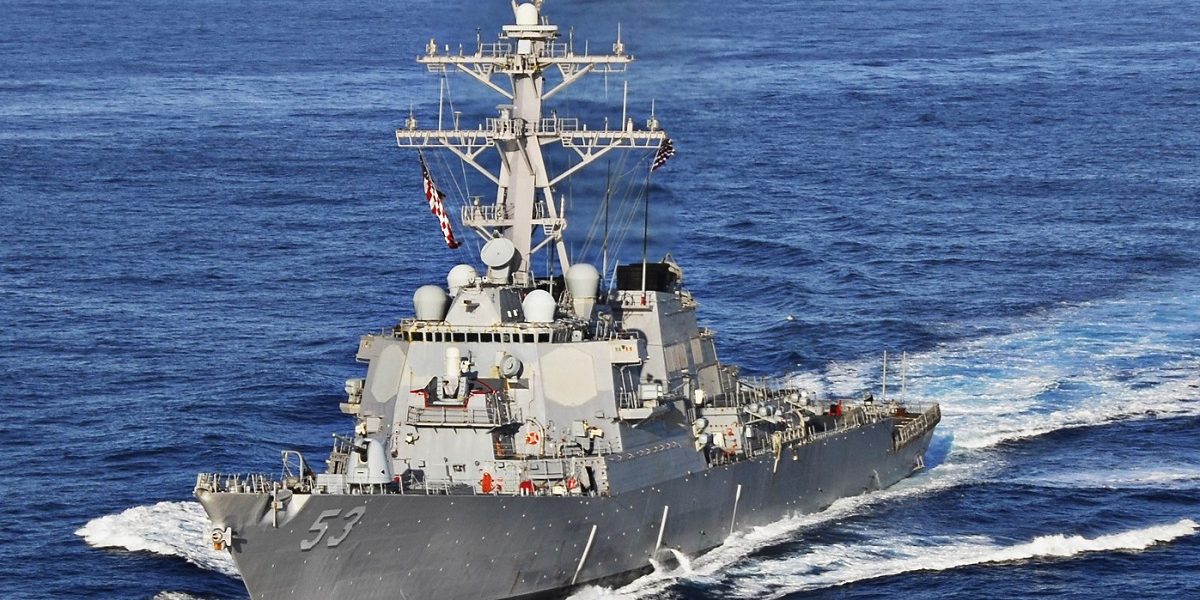New Delhi: In an unexpected move, the US Navy this week conducted a freedom of navigation patrol in Indian waters without India’s prior consent, declaring that it was intended as a challenge to India’s “excessive maritime claims”.
The press release issued by the Commander of the US seventh fleet states that on April 7, USS John Paul Jones “asserted navigational rights and freedoms approximately 130 nautical miles west of the Lakshadweep Islands, inside India’s exclusive economic zone [EEZ], without requesting India’s prior consent, consistent with international law”.
It added that the freedom of navigation patrols “upheld the rights, freedoms, and lawful uses of the sea recognized in international law by challenging India’s excessive maritime claims”.There has been no official reaction from the Indian government and it is not known if Indian forces had challenged the US warship.India and the US have fundamental differences in coastal states’ rights to stop foreign military ships from conducting military activities within their EEZ.
When India ratified the UN Convention of the Law of the Sea (UNCLOS) in 1995, it declared that in its understanding “the provisions of the Convention do not authorize other States to carry out in the exclusive economic zone and on the continental shelf military exercises or manoeuvres, in particular those involving the use of weapons or explosives without the consent of the coastal State”.
The US has not ratified UNCLOS.
The differences, which began during the drafting of the treaty, is over the interpretation of Article 58 (i) of the Convention.
- In the exclusive economic zone, all States, whether coastal or land-locked, enjoy, subject to the relevant provisions of this Convention, the freedoms referred to in article 87 of navigation and overflight and of the laying of submarine cables and pipelines, and other internationally lawful uses of the sea related to these freedoms, such as those associated with the operation of ships, aircraft and submarine cables and pipelines, and compatible with the other provisions of this Convention.
The second clause of the Article then lists Articles “88 to 115” as also applying to the EEZ “in so far as they are not incompatible with this Part”.
Maritimes nations like the US have long argued that the phrase “other internationally lawful uses of the sea” means that they can enjoy the freedom to operate in the EEZ. They also cite Article 87 that lists freedoms in the high seas, including freedom of navigation, implying that this applies to the EEZ.
According to a 2019 article by Manoj Joshi in The Wire, United States has regularly carried out intelligence and survey missions in India’s EEZ. “These used to occasion protests from New Delhi in the past. In these fraught times, however, the government and navy prefer to remain silent on US operations in the EEZ, even as they tom-tom their ‘victories’ over China,” he wrote.The unusual point of the current development was that this was the first time in recent memory that the US navy has publicly acknowledged that a military ship has entered India’s EEZ.Former Naval chief Arun Prakash also took note of the US seventh fleet publicising the FONOP in Indian waters.
He also wondered if the US’s freedom of navigation patrols in the South China Sea were about signalling to China about its “putative EEZ around the artificial SCS islands”, “but what is the what is the 7th Fleet message for India?”
The press release further stated that US forces conduct routine and regular Freedom of Navigation Operations (FONOPs), “as we have done in the past and will continue to in the future”. “FONOPs are not about one country, nor are they about making political statements,” it noted. Interestingly, the US has always considered India as a cornerstone for its Indo-Pacific policy, with both of them part of the ‘Quad’ format.
In most bilateral documents, India and the US have routinely asserted their common shared values of “support for safety and freedom of navigation, overflight and other lawful uses of the seas” in the Indo-Pacific region. This is usually supposed to refer to Chinese expansionist activities in the disputed South China Sea.
































